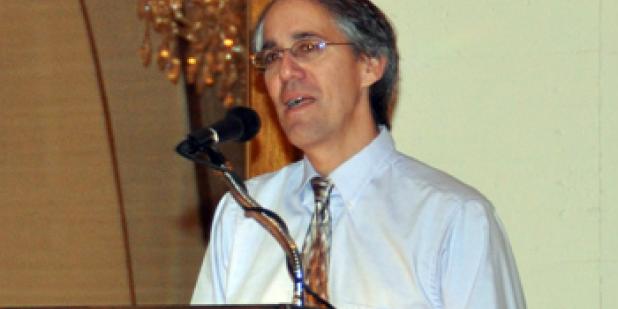Join us for a free one-day workshop for educators at the Japanese American National Museum, hosted by the USC U.S.-China Institute and the National Consortium for Teaching about Asia. This workshop will include a guided tour of the beloved exhibition Common Ground: The Heart of Community, slated to close permanently in January 2025. Following the tour, learn strategies for engaging students in the primary source artifacts, images, and documents found in JANM’s vast collection and discover classroom-ready resources to support teaching and learning about the Japanese American experience.
The Impact of the Olympics: Jeffrey Wasserstrom

Jeffrey Wasserstrom
Jeff Wasserstrom studied at UC Santa Cruz, Harvard, and UC Berkeley. He previously taught at the University of Kentucky, Indiana University, and UC San Diego and is now professor of history at UC Irvine. He is the editor of the Journal of Asia Studies and is the author or editor of nine books. His most recent books are Global Shanghai, 1850-2010: A History in Fragments (author, 2008) and China in 2008: A Year of Great Significance (co-editor, 2009). He has also consulted on two documentary films (most recently, Morning Sun) and he has contributed essays to a number of prominent newspapers and blogs. Wasserstrom is also a founder of and steadfast contributor to The China Beat, one of the liveliest China-corners on the web.
This video is also available on the USCI YouTube Channel.
Click on the play button above to view Jeffrey Wasserstrom’s presentation.
The Olympics were intended to give the world a chance to learn anew about China, so that Western audiences could replace old images of a backward country with fresh visions of modern one. This happened, but frequently the effect was not quite what Beijing's leaders (or the IOC) hoped, due to controversies associated with human rights and other issues. In addition, there were key moments, such as the Opening Ceremonies, when international audiences failed to learn all they might have from what they were seeing, due to the spin provided by soundbite driven media. In addition to looking back at the Beijing Games, this presentation will ask what, if any, lessons we can take from 08/08/08 as we prepare for 05/01/10--the day that Shanghai takes the global spotlight when the 2010 World Expo, China's First World's Fair, opens for business.
Jeff Wasserstrom covers some of these topics in a March 3, 2009 contribution to the Huffington Post.
Click here to return to the USC Beijing Olympics conference page.
Featured Articles
Please join us for the Grad Mixer! Hosted by USC Annenberg Office of International Affairs, Enjoy food, drink and conversation with fellow students across USC Annenberg. Graduate students from any field are welcome to join, so it is a great opportunity to meet fellow students with IR/foreign policy-related research topics and interests.
RSVP link: https://forms.gle/1zer188RE9dCS6Ho6
Events
Hosted by USC Annenberg Office of International Affairs, enjoy food, drink and conversation with fellow international students.
Join us for an in-person conversation on Thursday, November 7th at 4pm with author David M. Lampton as he discusses his new book, Living U.S.-China Relations: From Cold War to Cold War. The book examines the history of U.S.-China relations across eight U.S. presidential administrations.




